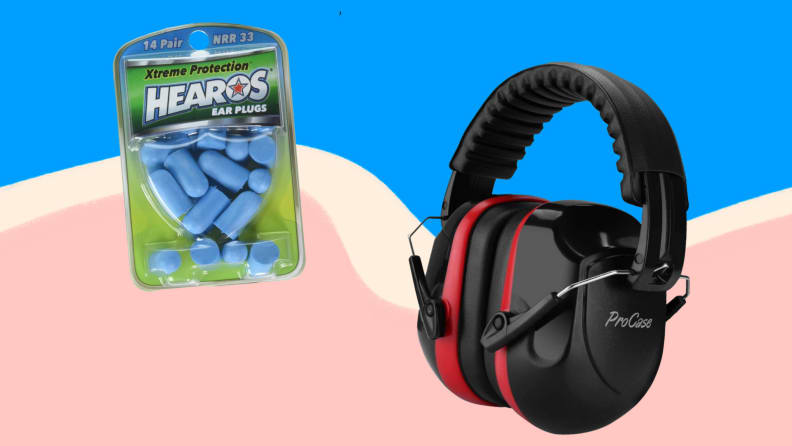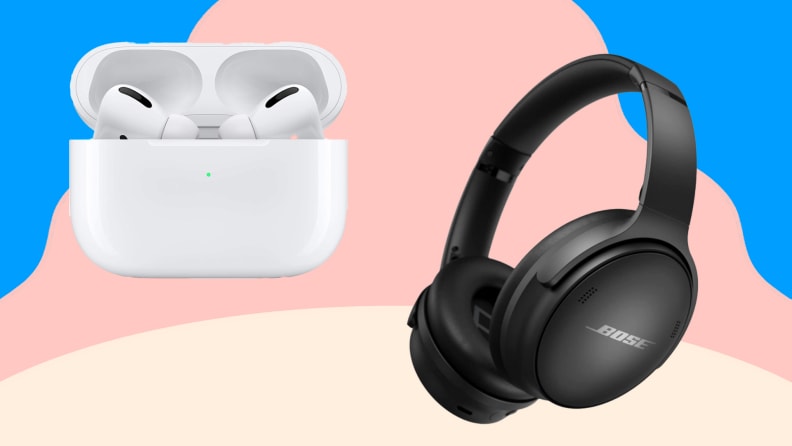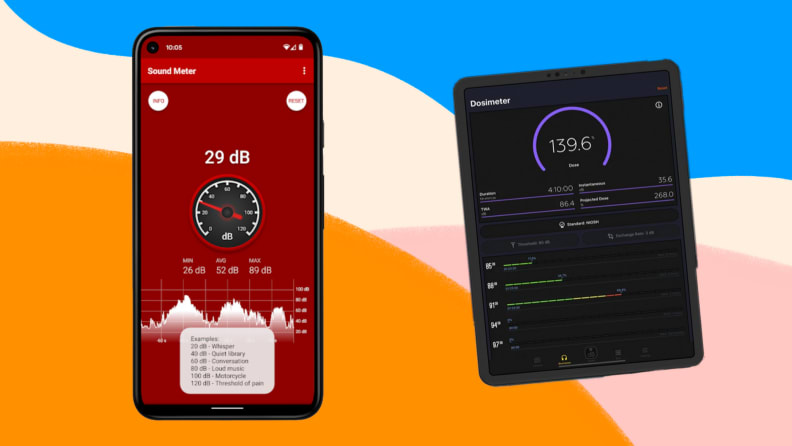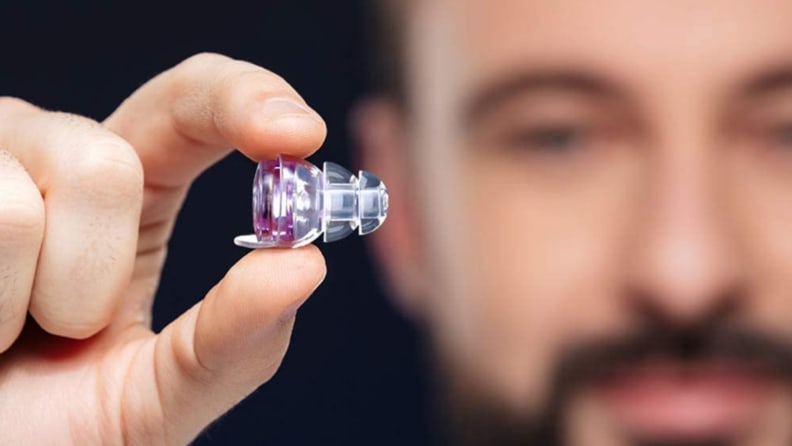6 tips to prevent noise-induced hearing loss
You should be protecting your hearing, no matter your age
Products are chosen independently by our editors. Purchases made through our links may earn us a commission.
Hearing is an important part of our daily lives regardless of age. Sure, younger people don’t need hearing aids or cochlear implants at the same rate as older people, but it’s important to protect your hearing whether you’re rooting for your school at a college stadium or enjoying a dance at the local senior center. A single loud event can irreversibly damage your hearing, so it’s best to educate yourself about noise-induced hearing loss and make a conscious effort to treat your ears with respect.
What is noise-induced hearing loss?
Noise induced hearing loss, also known as NIHL, happens when sound damages the sensitive structures and fibers of your inner ear. NIHL can be both temporary or permanent and can affect one or both ears, per the National Institute of Health. According to a study from 2006, over 10 million adults (6%) under age 70 have NIHL symptoms, as well as 17% of teenagers, which is almost three times the adult rate.
What’s important to know about NIHL is that it can happen over time without any noticeable changes; for example, while exposing yourself to loud concerts or operating loud equipment in small spaces without ear protection. While it’s impossible to control all noises and noise levels, you can control how you protect your hearing and how prepared you are when you expect to be exposed to loud noises. Read on for six ways to prevent noise-induced hearing loss.
1. Wear ear protection around loud noises

Although it may not seem like it, your eardrums are fragile and deserve the best defense possible.
The most obvious line of defense against loud noises is to wear ear protection. Ear plugs are great because they’re portable, small, and tend to be accessible and affordable at any local drugstore. Keeping a pair of ear plugs in your purse, car, or backpack ensures you’re prepared for any loud event like a concert, house party, sporting event, fireworks show, or even passing construction.
Similarly, if your job requires you to operate loud machinery, whether it be factory or farm equipment, it’s equally important to protect your ears. Ear plugs are a good option, but over-the-ear protection may be more comfortable if worn for a longer time period. Ear muffs may also stay in place better if you’re moving around while loud noises are present around you.
Get the Hearos Extreme Ear Plugs from Amazon for $14.39
Get the ProCase Safety Ear Muffs from Amazon for $16.99
2. Turn down the volume you can control
In many situations, especially on a daily basis, you are in full control of the noise around you. Think about your car radio, your computer speakers, and the sound coming from your TV. Most of these devices have a remote or button that allows you to adjust the noise—ideally by turning the volume down. Brian D. Nicholas, director of hearing and balance at White Plains Hospital, outlines a few parameters for knowing when your daily noise level may be harmful:
If someone five or more feet away can hear the music through your headphones or earbuds—it’s too loud.
If you’ve turned up the volume more than 75% of how loud your device will go—it’s too loud.
If you’ve turned up the volume to drown out other noise like a lawn mower, coffee shop chatter, or washing machine—it’s too loud.
Read more: You should never let your kids wear earbuds—here’s why
3. Wear comfortable devices that fit you well—and take breaks

Like everything else, all headphone use should be in moderation—but these picks from Apple and Bose are too good to pass up.
The last two decades of scientific advancements have led to an increased reliance on personal technology, especially given the increased prevalence of video calls since the start of the pandemic. Due to this change in lifestyle, people of all ages tend to wear ear buds or headphones more often and for longer periods of time. Doctor of Audiology Shelby McCann believes, “It is vital that these protection devices fit properly—the more comfortable these devices are, the better they will work and the more likely users will be to wear them.”
You may swear by your Airpods or Sony headphones—the top pick in our headphone testing—but if they bother your ears you might want to try a different model or brand. And in the cases where your hearing devices fit you well, don’t forget to take breaks. Nicholas suggests taking a headphone break equal to the amount of time you’ve been wearing them. “If you’ve been listening to music for an hour, take a one-hour break. Thirty minutes? Take a thirty-minute break.”
Get the Sony WH-1000XM4 Noise-Canceling Headphones from Amazon for $348
4. Find out how loud your surroundings are

Preserve your ears with volume control apps that can be downloaded straight to your phone or tablet and kept handy daily.
In some situations, it may be difficult to truly know how much noise pollutes your area. For that, Jay Clark, CEO of EarPeace, urges people to consider downloading a decibel meter app on their smartphones. As Clark describes, the decibel meter app allows you to “check how loud it is as you move through the world. Often when we've become attuned to how loud a space is, we don't realize the everyday volume can be in the harmful range until we check and see the decibel readings in real time!” You may not realize that your commute is louder than a sports stadium, or how much white noise adds up in your home environment. Oftentimes the first step to solving any problem is figuring out where you stand.
Get the Sound Meter App from Google Play for Free
Get the Decibel X App from Apple App Store for Free
5. Be prepared for noises—both expected and the unexpected

Now concerts and festivals can remain fun without the lingering ear-ringing the next day.
Another way to prevent noise-induced hearing loss is to be ready to protect your ears in any situation. “Just like you might carry sunscreen to protect your skin…having your hearing protection with you is always going to be your best defense against loud adventures that come up unexpectedly!” says Clark. I have a handful of friends who keep earplugs on their key ring so they don’t forget to take them to concerts and football games. You could also keep a spare set of earbuds in your backpack or car to be prepared. Check out our Best Earplugs for Sleeping for the top tested sound-blocking pairs and to shop “heavier duty” ear plugs.
Get the Mumba Concert Ear Plugs from Amazon for $23.95
6. Seek help if you notice a change in your hearing
To prevent NIHS, you need to be aware of it. You can learn about the dangers of noise levels, common issues in your geographic area, hearing loss, and options for hearing treatment and interventions. Nicholas reminds us, “While most hearing loss is not reversible, there are instances of temporary hearing loss: from a loud speaker at a concert, for example. But, the impact on your ears of exposure to chronic noise is irreversible.” Do your best to protect your hearing, but if you are concerned an event has impacted your ability to hear well, consider reaching out to a doctor or specialist to take a hearing test or discuss hearing aids or cochlear implants.
Read more: Noise-induced hearing loss and you
The product experts at Reviewed have all your shopping needs covered. Follow Reviewed on Facebook, Twitter, Instagram, TikTok or Flipboard for the latest deals, product reviews, and more.
Prices were accurate at the time this article was published but may change over time.


